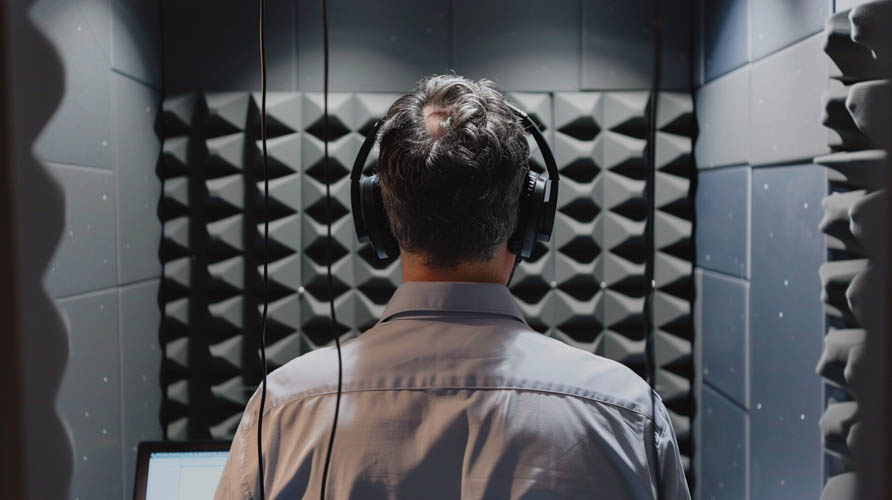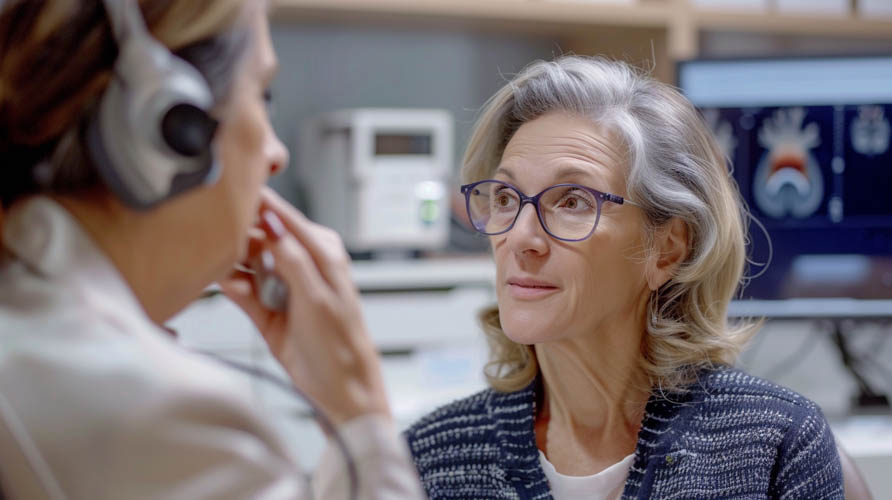You might not realise it, but regular adult hearing tests are a key component of maintaining your overall health and quality of life. Early detection of hearing issues means effective treatment and avoiding complications such as cognitive decline, social isolation, and depression. Hearing is linked to brain health, balance, and even detecting other conditions like cardiovascular disease. Look out for signs like asking people to repeat themselves or struggling with conversations in noisy places. Regular tests can significantly enhance your daily interactions and mental well-being. Discover more essential details about what to expect and how to maintain your hearing health.
Importance of Hearing Tests
Regular hearing tests are essential for maintaining good overall health and quality of life. Keeping up with these assessments means you’re not just checking your ability to hear, but also safeguarding other facets of your well-being. Hearing loss can develop gradually, making it difficult to notice changes until they become significant. By having regular tests, you can detect any issues early, which is crucial for effective treatment and management.
Hearing isn’t just about your ears; it’s connected to your brain health, balance, and even emotional well-being. Untreated hearing loss can lead to social isolation, depression, and cognitive decline. Regular tests help you stay connected with loved ones and maintain a high quality of life. It’s easier to enjoy conversations, music, and daily sounds when your hearing is in good condition.
Furthermore, regular hearing tests can uncover underlying health conditions, such as cardiovascular diseases or diabetes, which might not exhibit other symptoms initially. By prioritising your hearing health, you’re taking a proactive approach to your overall well-being. So, don’t wait—make hearing tests a regular part of your health routine today.
Signs You Need a Hearing Test
If you frequently ask people to repeat themselves or notice ringing in your ears, it might be time for a hearing test. These signs can indicate early hearing loss, and catching it early is crucial for effective management. Another warning sign is struggling to follow conversations in noisy environments, like restaurants or social gatherings. If you find yourself straining to hear or keep up, that’s a clear indicator.
You might also notice you’re turning up the volume on the TV or radio more often than before. If others comment on the volume being too loud, it’s a sign your hearing might be compromised. Additionally, if you have difficulty understanding phone conversations or if voices sound muffled, these issues shouldn’t be ignored.
Sometimes, you might experience a feeling of fullness in your ears, similar to when you’re on an aeroplane. This can also be a sign that your hearing isn’t what it used to be. Frequent ear infections, dizziness, or balance issues can be related to hearing problems as well. Paying attention to these signs and acting promptly can significantly improve your quality of life. Don’t wait—schedule a hearing test if you notice any of these symptoms.
What to Expect During a Test
Now that you’ve identified the signs of potential hearing loss, you’re probably wondering what happens during a hearing test. First, you’ll meet with an audiologist, a healthcare professional specialising in hearing. They’ll start by asking about your medical history and any hearing issues you’re experiencing. This helps them understand your specific situation.
Next, you’ll undergo a physical examination of your ears using an otoscope. This device lets the audiologist check for any physical blockages or abnormalities in your ear canal and eardrum. Once that’s done, the actual hearing tests begin.
You’ll be taken to a soundproof room and given headphones. The audiologist will play a series of tones at various pitches and volumes in each ear. You’ll need to indicate whenever you hear a sound, usually by raising your hand or pressing a button. This test, called pure-tone audiometry, helps determine the faintest sounds you can hear at different frequencies.
Another common test is speech audiometry, where you’ll listen to and repeat words spoken at different volumes. This assesses how well you understand speech in different environments. By the end of these tests, your audiologist will have a clear picture of your hearing ability.
Benefits of Early Detection
Identifying hearing issues early can greatly enhance your quality of life and overall health. When you recognise hearing problems sooner rather than later, you can take immediate steps to address them, avoiding potential complications. Early detection can help prevent further hearing deterioration, ensuring you maintain better auditory function for a longer period.
Moreover, recognising hearing issues early can improve your social interactions. You’ll be more confident in conversations, reducing misunderstandings and frustration. This can lead to stronger relationships with family, friends, and colleagues.
Early detection also plays a crucial role in mental health. Untreated hearing loss has been linked to increased risks of depression, anxiety, and even cognitive decline. By catching hearing issues early, you can take proactive measures to protect your mental well-being.
Financially, early detection can save you money. Addressing hearing loss early on typically involves less expensive treatments and interventions compared to dealing with advanced hearing loss, which might require more complex and costly solutions.
Ultimately, regular hearing tests and early detection empower you to make informed decisions about your health, ensuring you enjoy life to the fullest without the constraints of untreated hearing issues.
Maintaining Hearing Health
To maintain hearing health, it’s essential to adopt habits that protect your ears and preserve your auditory function. First and foremost, avoid prolonged exposure to loud noises. If you work in a noisy environment or attend loud events, wearing earplugs or noise-cancelling headphones can make a significant difference. Keep the volume at a reasonable level when using earbuds or headphones, and follow the 60/60 rule: listening at no more than 60% volume for no longer than 60 minutes at a time.
Regular exercise and a healthy diet also contribute to maintaining hearing health. Cardiovascular health is linked to auditory health, so activities that improve blood circulation can benefit your ears. Additionally, consuming foods rich in omega-3 fatty acids, vitamins A, C, and E, and minerals like magnesium and zinc can support auditory function.
Don’t ignore ear infections or any symptoms of hearing loss. Prompt medical attention can prevent further complications. Lastly, avoid inserting objects into your ears, including cotton buds, as they can damage the ear canal or eardrum. Instead, clean your ears gently with a damp cloth or seek professional help for earwax removal.



